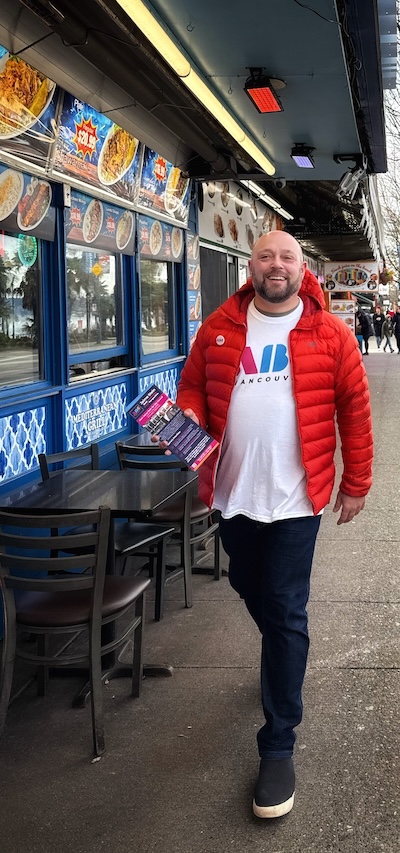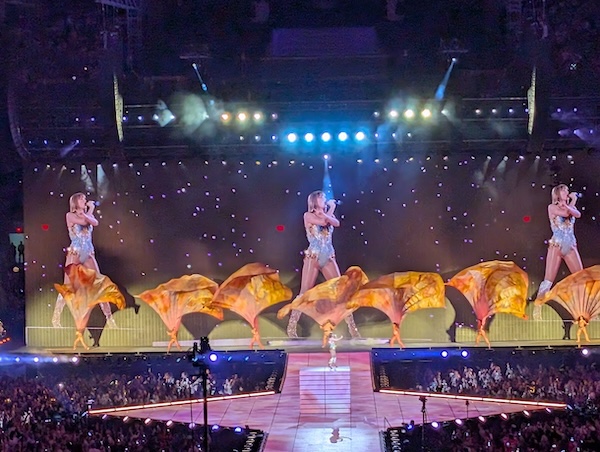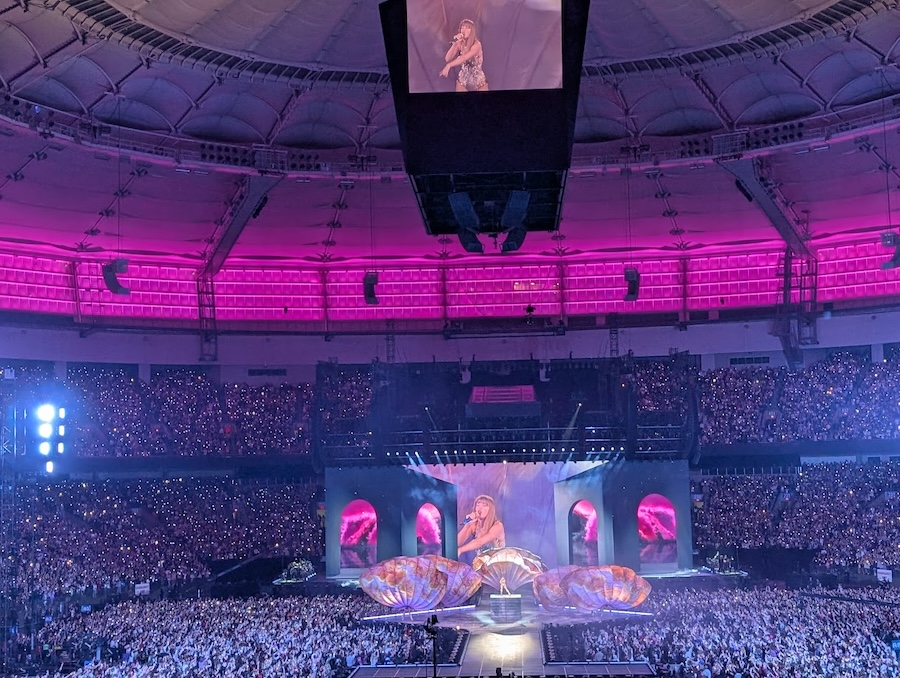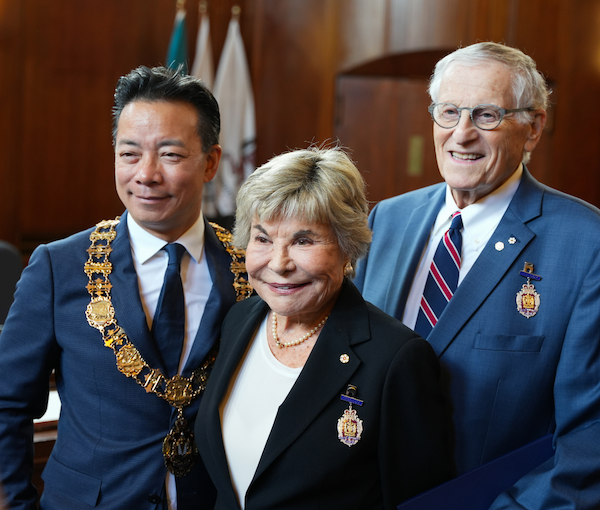A crane lifts a tunnel boring machine part out of the excavated Arbutus Station. With all the changes the Broadway Subway Project is bringing, the Accidental Balabusta and her husband are looking for a new condo – going from renters to owners. (photo from broadwaysubway.ca)
Growing up in the 1960s and ’70s in the then-Jewish neighbourhood of Oakridge, I was certain my future would include a beautiful house and a large yard. And, of course, a husband. Only part of that dream came to fruition, in 2009, when I got married at age 53. Before Harvey came along, I was a single woman making a decent but not extravagant living, and a house was way out of reach for me. So, I rented apartments. For decades. Welcome to my bad-news, good-news story.
As I got older, the importance of attaching myself to the Jewish community became stronger and, as luck would have it, I ended up renting a place a mere seven-minute walk from a shul. And I stayed put for 37 years. Now, faced with expulsion from our apartment because of the Broadway Subway Project, I am struck not by anger or nostalgia, but by gratitude. And maybe a touch of anxiety about having to move at this stage of my life. At 68 years old, I have never owned anything in my life, except a car.
Having a deep-seated faith, I try, I really try to remember that everything that comes from G-d is good. I try, also, to take the mindset of “I don’t understand why this is happening to me, but I know in my bones that it’s good for me in some way.” This imposes a much-needed positive outlook. One that will propel me forward, rather than keep me stuck in a negative “Why me?” loop.
As renters in this situation, we are entitled to compensation by law. However, it’s cold comfort when confronted with the stark reality of having to find a new home. Politicians talk blithely about “affordable, below-market rental housing,” but, in reality, no such thing exists for those who are retired and on a fixed income. In short, living in Vancouver has become an absurd luxury.
As luck would have it, I am a thrifty kind of gal and, over the decades, I have saved a respectable amount of money. So, along with my husband, we have finally decided to buy a condo – in Vancouver. One of the most expensive cities to live in.
Having spent the past while looking for a condo to purchase, I am bombarded by conflicting emotions:
excitement, fear and trepidation. But mostly gratitude. Waking up at 3 a.m. for a full week while battling insomnia, I got to the point where, instead of trying to think of five foods starting with each letter of the alphabet (a trick to induce boredom and sleep), I started to think of everything I am thankful for. I’m happy to report that the list is very long. This is just a sampling.
I am grateful that I can choose between carpeting and hardwood.
I am grateful that I will finally have in-suite laundry.
I am grateful that I will have a bigger kitchen, where I can bake challah regularly and cook luscious Shabbat meals in a space that is larger than a Smart Car.
I am grateful that I can, within reason, afford a condo in Vancouver.
I am grateful that I have friends who are guiding me through this process.
I am grateful that I have the energy to run around looking at prospective homes.
In short, I am grateful that I have choices. Plenty of choices.
It’s common knowledge that Jewish family values begin at home, and that’s what I’d like to continue nourishing and cultivating. From a real home. My home. For now, I am focusing on having faith and trust that Harvey and I will find a comfortable forever home. I have accepted that we may or may not still be a seven-minute walk from a shul. Thankfully, faith isn’t tied to geography. We can practise our Judaism anywhere.
As for the nuts and bolts, the experience of condo-hunting is an eye-opener for me. Little by little, condo by condo, I’m readjusting my priorities, figuring out what I can and can’t live without. Our realtor, thank goodness, has the patience of a saint and the temperament of a golden retriever.
Pragmatists that we are, we’ve started the search for a new home early, long before we are forced to move out of our rental apartment. But, as I’m learning, our property owner seems loathe to put money into a building that will be torn down within two years. So, we are living with stained hallway carpets, communal washers and dryers that rarely work, and balconies that haven’t been power-washed since before COVID. Am I enjoying this? Not even a scintilla. But still, I practise gratitude.
My constant refrain these days is: “It’s not the Vancouver I grew up in!” There are cranes everywhere on the horizon and there’s no telling what will be torn down next. It’s very unsettling. But at least we are fortunate enough to have options.
My periodic anger (which I am trying valiantly to contain) stems from the fact that I’ve lived and worked in Vancouver nearly my entire life and, while I was single until 15 years ago, I could never afford to buy a home. Thank G-d, my situation has changed, circumstances have opened up choices that never existed before, and the planets have aligned, allowing us to finally buy a home.
Now, we just have to find one that meets my simple needs: in-suite laundry, hardwood floors, a good-sized kitchen and not south-facing. I say “my needs” because we can all agree on the universal truth: “happy wife, happy life.” It’s a buyer’s market at the moment, so yippee for us. This whole roller-coaster journey offers a new chapter in our lives; one filled with hopefulness, possibilities and joy. I look forward with gratitude to a beautiful mezuzah on a new door to bless our new home. All I can say is l’chaim!
Shelley Civkin, aka the Accidental Balabusta, is a happily retired librarian and communications officer. For 17 years, she wrote a weekly book review column for the Richmond Review. She’s currently a freelance writer and volunteer.











